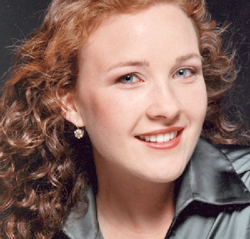by Daniel Hathaway

It was a weekend of replacements. Albrecht agreed some weeks ago to step in for Pierre Boulez, necessitating a complete change in repertoire, and mezzo-soprano Sasha Cooke filled in on much shorter notice for Alice Coote, who had to cancel due to a family illness. I heard the Thursday concert.
Mahler’s Blumine is an unassuming, sentimental little piece that seems to have wandered in from a cabaret — or maybe from the pit of a theater orchestra, judging by its instrumentation. Discovered only in 1966 in a library at Yale, it originally functioned as the second of five movements during the first symphony’s early gestation period. Its single theme was sweetly inflected both at the beginning and at its reprise by trumpeter Michael Sachs, and the five-minute piece ended with a mere whisper from violins and harp.
Mahler’s autobiographical Lieder eines fahrenden Gesellen chronicle in four evocative songs the whole emotional range of his early love affair with a singer — from despondency to Weltschmerz, and from nightmare to irony, in that order. Sasha Cooke, singing from but not wedded to the score, brought them to life with superb diction and a dark, even tone — except when she floated phrases like Mir nimmer blühen kann! to haunting effect.

For his short-lived, early twentieth-century Society for Private Music Performance (critics not welcome), Arnold Schoenberg served up new works to Viennese connoisseurs in economical reductions, including a version of Mahler’s Wayfarer Songs for voice and a tiny complement of instruments: flute, clarinet, harmonium, piano, string quintet and percussion. On the other hand, in the 1930s in California, he beefed up Brahms’s g-minor piano quartet, op. 25, for a large orchestra with a fully-equipped percussion section.
The Brahms/Schoenberg, which ended this short evening, has a close relative in Sir Thomas Beecham’s version of Messiah with all of its added orchestral bells and whistles. Both are amusing and ear-catching, but you have to wonder just what each arranger thought was missing in the original.
Rather than distributing the music around the orchestra, Schoenberg reworked the original string parts for the strings and assigned the piano part to the winds and brass, which created some very odd doublings (lots of contrabassoon) and seemingly impossible flights of virtuoso tonguing that the players pulled off with élan. Some re-scorings included wild passages for xylophone, and notes from the glockenspiel and a bellicose march added some decidedly un-Brahmsian touches.
Perhaps Schoenberg’s proximity to Hollywood led him off toward the deep end. The Quartet was outrageously fun and brilliantly played by Albrecht and the Orchestra, but left you with much the same feeling as the full string section version of Beethoven’s Grosse Fuge — that there might have been more palpable intensity in the original piece. Or the impression that Schoenberg might have been more successful in his reductions than in his elaborations.
Published on ClevelandClassical.com February 20, 2014
Click here for a printable version of this article.


